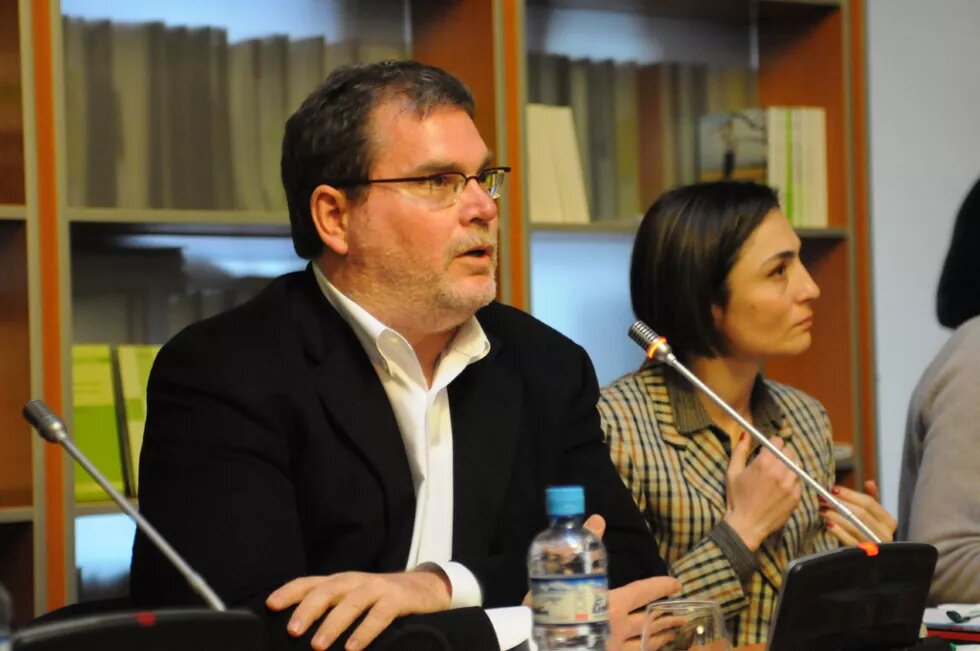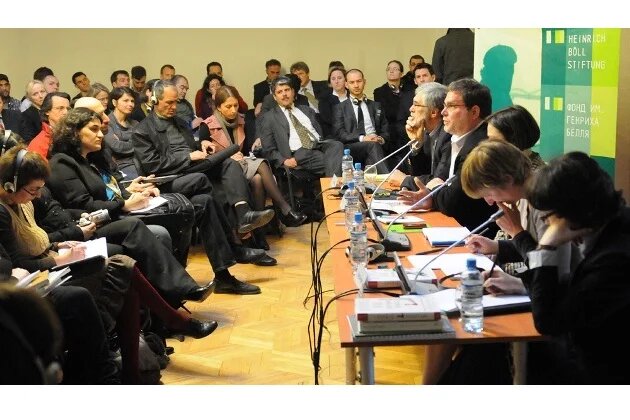

“If Poland becomes a member of NATO, there will be nuclear war.” A Russian general delivered that warning to Ronald D. Asmus in the 1990s, on just his third day in the job of advancing the Clinton administration’s policy of NATO enlargement. When Asmus spoke on a panel at the South Caucasus Regional Office of the Heinrich Boell Foundation on April 15, 2010, he did not reveal how he answered his pugnacious counterpart. Diplomatically, he also left the general unnamed.
But the anecdote showed that the vision of a Europe “whole and free” has drawn sharp opposition almost from the moment that it was announced, opposition that continues to this day. Asmus has long worked to extend the zone of stability and freedom within Europe and became widely known in Georgia for advocating that the West should welcome Georgia.
The discussion at the Heinrich Boell Foundation followed previous open public debates starting as early as in September 2008 debating “Peace after the war: Syndrome of a won war”, continues in July 2009 the situation of refugees after the 2008 conflict and in November 2009 about the Tagliavini report. The debates have gone beyond asking who fired the first shot and have been concentrated on the structural causes of the war and the long-term, large-scale consequences.
In his book, A Little War That Shook the World: Georgia, Russia and the Future of the West, Asmus argued that the 2008 war between Georgia and Russia was a failure of the European security system. “I wrote the book for two reasons,” said Asmus. “First, the way the international media have told the story of the war is wrong. Second, people in the West are too eager to forget the war, and thus too reluctant to answer the questions it raises.”
The Georgian and international audience of more than 150 was eager to hear Asmus’ views, along with perspectives from Gia Nodia (Chairman of the Caucasus Institute for Peace, Democracy and Development), Tina Khidasheli (International Law Expert) and Iris Kempe (Director of the Heinrich Boell Foundation, South Caucasus). In addition to the argument of the book, Asmus stressed the long-term conditions leading up to the war, and said that in the end it was less a matter of ethnic tensions than of Russia wanting to stop Georgia’s drive for integration with the West. Nodia also emphasized the importance of looking at the whole context of events leading up to the war, but argued that the status of Abkhazia and South Ossetia were the underlying cause of the war. Khishadeli stressed the question of what kind of country Georgia will become. She said that the main thing was to make progress within the country, and to take on the responsibility of building a country that is capable of joining wider European institutions.
Audience questions following the presentations showed a wide range of views about the actions leading up to the war, as well as the lessons that Georgian citizens and leaders should draw from the conflict. The book concentrates on how the conflict appeared from the Georgian side, and is the first monograph to be published on the subject. The panelists agreed than an equally well-sourced and well-written book that concentrates on the Russian side would be very valuable. A Little War That Shook the World is presently being translated into Georgian, with publication expected in August 2010. From a strategic perspective, the book should initiate a debate on how to move the project of a democratic and united Europe forward, a task that requires input from the civil societies in the neighboring countries, successful transition as well as real prospects for NATO and EU membership.